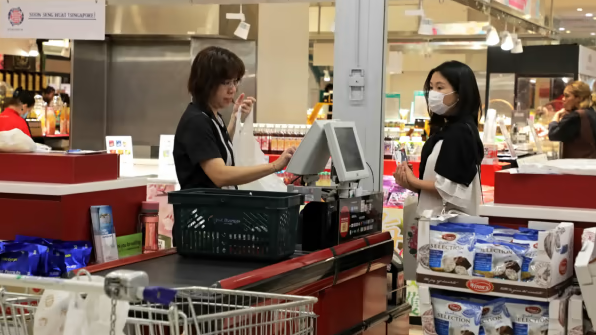Deputy Prime Minister Wong highlights caution on reliance for future fiscal planning
Singapore’s tax revenue saw a significant increase of 22.4% in financial year 2021, reaching S$60.7 billion, driven partly by the unexpected rise in “sentiment-based revenue,” according to Deputy Prime Minister and Finance Minister Lawrence Wong. This surge in tax revenue, detailed in the Inland Revenue Authority of Singapore’s annual report, prompted discussions in Parliament about the upcoming Goods and Services Tax (GST) hike, scheduled to rise to 9% in two stages starting next year.
Wong explained that while the increase in tax revenue was partly due to a low base in FY2020, a large portion of the growth came from higher-than-anticipated stamp duty collections. The rapid recovery of the property market contributed significantly to this rise, though Wong cautioned against relying on such volatile sources of revenue for Singapore’s long-term fiscal needs. He noted that fluctuations in property market sentiment could lead to unstable revenue streams, which cannot be depended on to cover the city-state’s growing recurrent expenditure.
In response to questions on how the government plans to manage rising spending, Wong reaffirmed that the higher tax revenue from FY2021 has been allocated to support new spending, including enhancements to the progressive wage credit scheme and short-term relief for businesses and families during Covid-19 restrictions.
Wong outlined the need for sustainable revenue to support long-term priorities, particularly in healthcare, economic transformation, and resilience in critical sectors like food and energy. He reiterated the importance of the planned GST increase, assuring Parliament that the majority of Singaporean households would not feel the impact of the hike for at least five years, with lower-income households shielded for about 10 years.
Regarding concerns over the potential fiscal deficit of S$5 billion in FY2021 and S$3 billion in FY2022, Wong emphasized that while these figures are projections, revenue and expenditure may fluctuate, and the aim is to run a balanced budget over the medium term, not accumulate surplus.
Wong also addressed queries on the challenges of forecasting tax revenue, particularly due to the volatility of the property market, which makes stamp duty a difficult revenue source to predict. He noted that while GDP-based revenue estimates are less volatile, Singapore’s small and open economy adds an element of uncertainty to forecasting.
In response to concerns raised by MPs about the impact of inflation on the lowest income groups, Wong assured that measures such as the Assurance Package and cost of living support have been implemented to alleviate the financial strain. He acknowledged that inflation disproportionately affects lower-income households and emphasized that the government is prepared to provide additional support where necessary.








